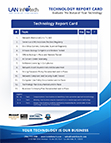Cloud computing is a revolutionary paradigm in the field of technology that has transformed the way businesses and individuals access, store, and process data and applications. Cloud computing offers numerous benefits, including scalability, cost-effectiveness, reliability, and accessibility. Users can easily scale their resource usage based on their needs, avoiding the constraints of fixed infrastructure. The pay-as-you-go model ensures that organizations only pay for the resources they consume, reducing upfront costs and enabling better budget management. The reliability and availability of cloud services, backed by redundant data centers, ensure uninterrupted access to applications and data.
It refers to the delivery of computing resources, including servers, storage, databases, software applications, and other services, over the Internet. There are five key components that make up cloud computing:
- Infrastructure as a service
- Platform as a service
- Software as a service
- Public cloud
- Private cloud
Cloud computing comes with many advantages that offer data recovery and cybersecurity. It has revolutionized the IT industry by providing on-demand access to computing resources over the internet and there are multiple advantages to including it once you understand how it operates.
Infrastructure as a Service (IaaS)
Infrastructure as a Service is a fundamental part of cloud computing. It provides virtualized computing resources over the internet. With IaaS, users can provision and manage virtual machines, storage, and networks to run their applications or store data. This eliminates the need for organizations to invest in physical hardware and allows for scalability and flexibility in resource allocation. Users have control over the operating systems, applications, and network settings, while the cloud provider manages the underlying infrastructure.
Platform as a Service (PaaS)
Platform as a Service is a layer of cloud computing that offers a platform for developing, deploying, and managing applications. PaaS providers offer a complete development environment, including development tools, programming languages, libraries, and frameworks. It allows developers to focus on writing code and building applications without worrying about infrastructure management. PaaS offers scalability, automatic updates, and easy collaboration, making it an attractive choice for developers and organizations looking to accelerate application development.
Software as a Service (SaaS)
Software as a Service is a cloud computing model where software applications are delivered over the internet on a subscription basis. Instead of purchasing and installing software locally, users can access and use applications through web browsers or thin clients. SaaS eliminates the need for software maintenance, updates, and support, as these responsibilities lie with the provider. It offers businesses the flexibility to use software without upfront costs and provides scalability to accommodate changing user demands.
Public Cloud
Public cloud refers to cloud services that are made available to the general public over the internet. These services are hosted and managed by third-party cloud providers, who offer shared resources to multiple users. Public clouds provide scalability, cost-effectiveness, and accessibility since users only pay for the resources they consume. They are suitable for a wide range of applications and businesses, from startups to large enterprises, and are particularly beneficial for organizations with fluctuating workloads.
Private Cloud
Private cloud is a cloud computing environment that is dedicated to a single organization. It is designed to provide similar benefits as public cloud, such as scalability and self-service provisioning, but is operated within the organization’s own data center or hosted by a third-party provider exclusively for that organization. Private clouds offer enhanced security and control since resources are not shared with other users. They are suitable for businesses with strict security and compliance requirements or those that require greater control over their infrastructure.
IT Services That Can Provide Support For You
Cloud computing is a transformative technology that has reshaped the IT landscape. It involves the delivery of computing resources, applications, and services over the Internet, eliminating the need for local infrastructure and hardware. By leveraging cloud computing, businesses and individuals can access on-demand resources, scale their operations efficiently, and achieve cost savings. The next step is to find a company that can help you implant the cloud computing technology and help navigate you through working it. Fortunately, there are many IT companies that can help you implant such methods, such as LAN Infotech.
LAN Infotech is an IT company that specializes in providing these cloud services for you and more, such as data recovery services and IT security. For over twelve years they have been working alongside law firms, nonprofit organizations, and the healthcare industry, and providing expert service. You can contact them by phone at (954) 717-1990 or email them at sales@laninfotech.com to set up a meeting to learn.


